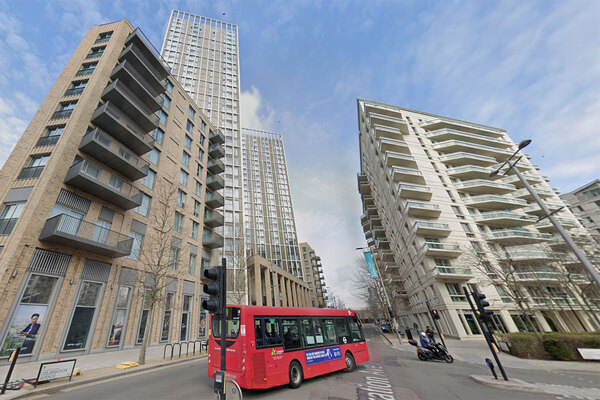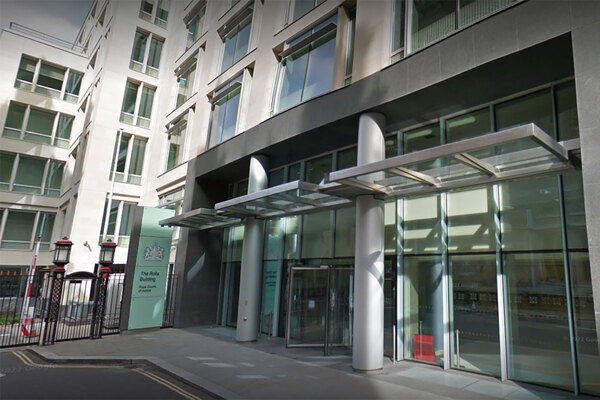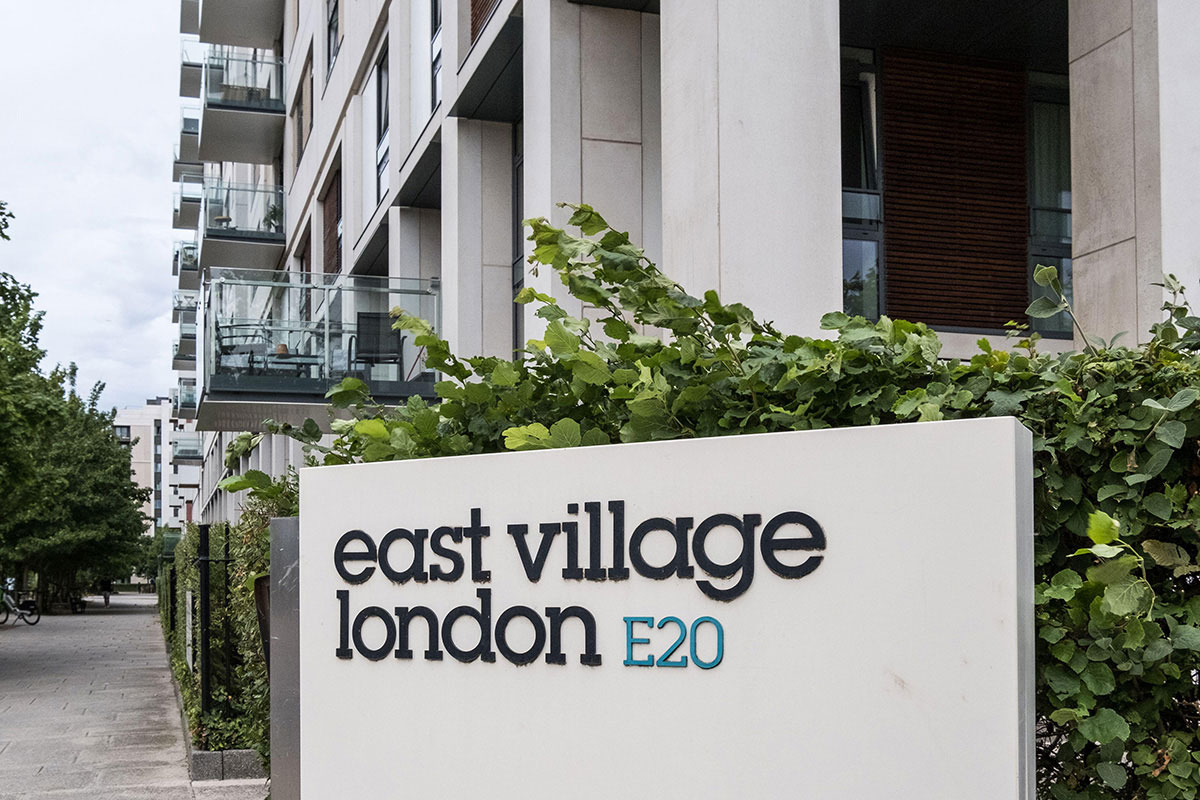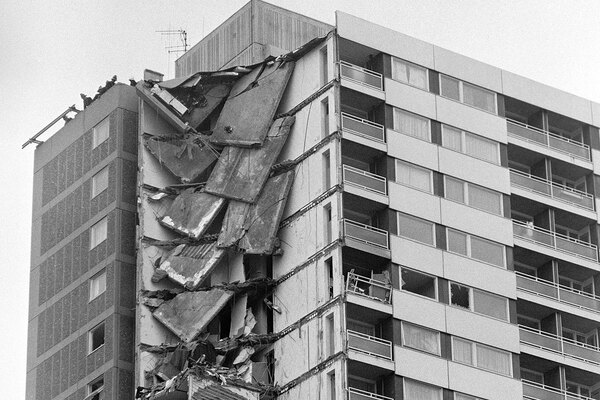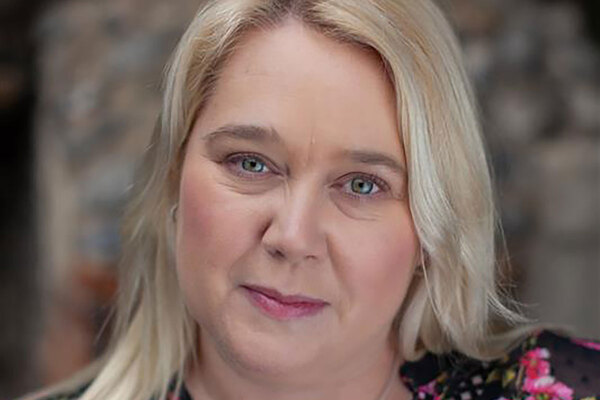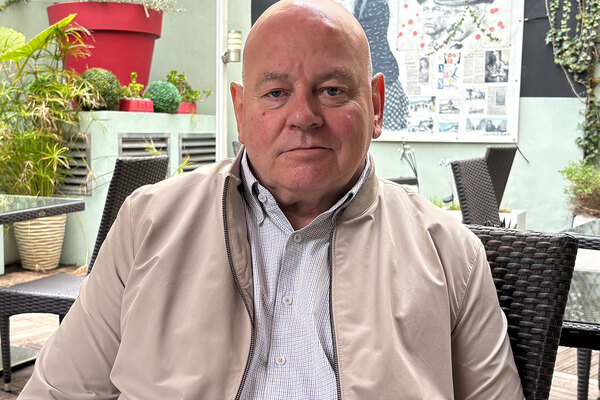What the landmark Get Living ruling means for housing associations and leaseholders
For the first time, a court has demanded building owners pay for cladding fixes. James Riding asks what the outcome means for the sector and if it will lead to the resolution of a wave of similar disputes

Late in January, a first-tier tribunal ordered the owners of London’s Olympic village to pay £18m to fix fire safety issues on five blocks of flats. The judgement was the first use of new remediation contribution order (RCO) powers under the Building Safety Act 2022. It was hailed as a victory by the leaseholders, who have been unable to sell their flats since defects were uncovered, and Triathlon Homes, the housing association that brought the action.
The first-tier tribunal has ruled that Stratford Village Development Partnership (SVDP), the developer of East Village, and Get Living, its parent company, must pay £18m towards making five of the 66 blocks safe.
Around 200 leaseholders across the development have been stuck and unable to sell the equity in their shared ownership properties since September 2020, when fire safety defects were uncovered.
The owners of the site must now reimburse the government’s Building Safety Fund, which is using £24.5m of taxpayers’ money to cover both Get Living and Triathlon’s share of the works.
Get Living said the result of the ruling was likely to have a “profound” impact on the sector. The parties must now agree the timeframe and terms of the RCO for the court’s approval. During the tribunal, both firms wrangled over whether Get Living should be using taxpayers’ money to foot the repair bill.
Get Living’s representative, Jonathan Selby KC, said there was “no suggestion that Triathlon should pay for these remediation works, or any tenants in any of the flats in the five blocks should pay”.
“Leaseholders aren’t paying, leaseholders aren’t required to pay and there is no challenge to the fact that the works are funded, under way and on target.”
Ramifications of the tribunal’s decision
Fourteen buildings at East Village have had aluminium composite material cladding removed. Work is continuing at the buildings that are the subject of the tribunal.
In the event that remediation costs are higher than the £24.5m allocated to them by government, Mr Selby suggested the Department for Levelling Up, Housing and Communities “is likely to want to fund” any potential overspend “because it wants to get the work done”.
He argued the only justification for making the order was so that the public purse could be repaid. However, he claimed Triathlon was not pursuing the tribunal for this purpose, but rather to “ensure that it does not have to contribute to these remediation costs”.
Richard Millett KC, representing Triathlon, responded that Get Living’s healthy finances meant “it is simply wrong to treat public funding as the golden goose”.
Get Living’s ownership structure was a key element of the tribunal. The entire Olympic Park was sold to a joint venture between Qatari Diar and a Delancey client fund after the Olympic Games, with Triathlon purchasing a lease on the affordable homes in East Village in 2009.
The market rent homes in East Village are managed by Get Living, which Delancey launched in 2013 as a property management company. The developer acquired the site with Qatari Diar, the Qatari royal family’s development arm, in 2011.
Implications of the ruling
● First use of new remediation contribution order (RCO) powers under the Building Safety Act 2022
● It would be hard for leaseholders to secure litigation funding for their own claim
● But it is “highly likely” that other housing associations in a similar public-private arrangement will bring tribunals against developers
● Investors in build-to-rent homes may be deterred
Fire safety remediation works in East Village are led by the estate management company and East Village Management Limited (EVML), the long leaseholder that is also a respondent in the case.
Mr Selby, representing Get Living, argued the money the company makes from the development is from its ownership of the blocks. “Get Living has just bought the properties and rented them out,” he said, meaning it was “more akin to a landlord than a developer”.
However Mr Millett, representing Triathlon, said Get Living “is just the latest holding parent company in a single, continuous holding group”. The companies underneath have been “heavily involved” with the original developer, SVDP. He pointed out that Get Living did no due diligence in 2018 when it acquired the structure that held SVDP.
“This was no more than corporate restructuring,” he said, arguing that SVDP was “a thinly capitalised and balance-sheet insolvent partnership”. Get Living, by contrast, was “a fatly capitalised company” that “not only owns and controls the developer, but is associated with the freeholders and has benefited very substantially from its acquisition of the East Village”.
Mr Millett summarised the ruling “could make housing associations more proactive” about pursuing remediation contribution orders.
Mr Selby responded: “We don’t pretend for a minute that Get Living’s shoulders aren’t broad enough to comply with the orders sought. But we do say, when considering what order is just and equitable to make, Get Living is not the alter ego of SVDP the developer. Get Living cannot in any way be said to be morally responsible for these defects.”
Since this legal wrangling played out in court, Inside Housing has spoken to legal experts to learn more about the ramifications for housing associations, leaseholders and building owners and what it will mean for similar cases that might already be going through the courts.
Giles Peaker, partner at Anthony Gold Solicitors, notes the centrality of housing association Triathlon to the case. He says the judgement “does show remediation orders potentially working, though notably it took a social landlord to bring the application, and it was fought vigorously”. It is “still a big ask” for leaseholders to bring an application and succeed, he adds.
Douglas Rhodes, partner at law firm Trowers & Hamlins, suggests the ruling “could make housing associations more proactive” about pursuing remediation contribution orders. In the right circumstances, social landlords “should be making these applications”. In this instance, Triathlon had a head lease on the building, as well as individual leaseholders.
It is “not uncommon” for a housing association to take the head lease of a block but not take on the maintenance. The freeholder will do so, then pass the costs on to the housing association, which passes the costs on to leaseholders.
In situations like this, he says, an RCO makes sense to protect leaseholders and the housing association from historical costs. Under the ruling, Get Living was ordered to pay ‘waking watch’ costs and to retrospectively pay for work done before the Building Safety Act took effect.
£18m
Amount a tribunal has ruled that the owners of East Village has to pay to fix fire safety issues
£24.5m
Amount the Building Safety Fund has paid to cover Get Living and Triathlon’s share of the works
“You would need a very committed and dedicated group of leaseholders to pursue these applications on their own,” Mr Rhodes says. He points out that Triathlon was not issued its costs for pursuing the case, nor were the leaseholders given a payout. Get Living was simply ordered to repay the public purse.
As a result, it would be hard for leaseholders to secure litigation funding for their own claim. For housing associations, however, he says the decision is “highly likely to be followed by subsequent tribunals” to protect leaseholders and ensure their own financial safety.
Helen Streeton, head of build-to-rent at law firm Forsters, says the decision bumps up against other government legislation to cover remediation work. Under the ruling, the owners must now reimburse the government’s Building Safety Fund (BSF), which is paying £24.5m of taxpayers’ money to cover both Get Living and Triathlon’s share of the works.
RCOs and BSF not aligned
On the RCO, she says, “its interface with the BSF is a bit odd. They’re not particularly aligned”. The Building Safety Fund allows people with responsibility for remediating the defective cladding to apply for taxpayers’ money, but “overlayered on that”, the Building Safety Act says “we can require you to contribute”.
“Although I understand the concept of somebody apart from the taxpayer being responsible for funding the works, I think it’s a massive decision for developers and building owners,” she says, as it “provides uncertainty” over whether they or their shareholders will have to pay back into the fund.
In this case, Get Living had deep enough pockets to cover the cost of the works, but not all building owners and shareholders are going to have that kind of capital available, she adds.
Ms Streeton points out that remediation works at the Olympic Village are “already ongoing and [the properties are] being remediated” anyway. Repairs on East Village began last year, while a further 33 buildings need work, with costs still being assessed.
“I’m not sure it means that anything’s going to change [overnight] and the leaseholders [are] suddenly going to be in a better position,” she says. The win for Triathlon, she suggests, is that it is much less at risk of leaseholders or other companies making an RCO against it.
The “real tragedy” of this situation is that “people can’t sell their flats”, she says. “People are stuck. And I’m not sure this really helps them. What has helped them is the BSF, providing that gap funding and allowing buildings to be remediated.”
Trowers & Hamlins’ Mr Rhodes offers a different take. “[The decision] is a benefit to leaseholders,” he says. The danger with the BSF is “it doesn’t necessarily cover every last penny of every last cost that needs to be undertaken”.
Ordering Get Living to pay up is “a massive peace of mind for leaseholders”, he adds, since if costs overrun beyond BSF funding, they won’t get stuck with the bill.
Rick de Blaby, chief executive of Get Living, has suggested the ruling could deter investment in build-to-rent homes.
“I don’t think that is an unfair comment,” says Mr Rhodes. “Cases like this are hardly going to encourage landlords to stay in the market, [but] it would really just deter people from investing in existing properties”.
Ms Streeton from Forsters says that there is “a basket of other things” that concern potential build-to-rent investors, such as viability, the planning system, rental reform and high interest rates. The ruling causes uncertainty, but may not be the decisive factor in an investment.
“I guess if there’s a risk, it gets priced in. So it’s a pricing issue to me,” she says.
The Olympic Park Homes Action Group, which represents some of the affected residents, previously described the judgment as “damning”.
It says: “Get Living has known for years that it owns the company that developed East Village. Instead of acting swiftly, it has sought to rely on the taxpayer to clear up its mistakes and maximise returns to investors.
“The judgment is clear that neither the taxpayer nor leaseholders should have to fund remediation works where developers have the means and resources to do so. As a leaseholder that has been trapped for the past five years with a flat that is unsaleable and unmortgageable, raising a young family in a crippling cost of living crisis, this judgment brings a glimmer of hope.
“We now urge Get Living to commit all necessary funds to remediate the other 33 buildings that remain unremediated across East Village.
“No appeals, no ifs, no buts – put the safety of all East Village residents above all else.”
Get Living has appealed the ruling, calling it “fundamentally flawed”.
The tribunal will decide by mid-March whether to grant the appeal.
Recent longform articles by James Riding
Dagenham fire: what happened and what we know about the building
A fire at a block of flats in Dagenham, east London, on Monday has sparked fresh debate about the slow progress of cladding remediation in the UK. James Riding runs through what we know so far
Peter Denton discusses the Homes England review and Section 106 jitters
Homes England’s chief executive tells James Riding that a new government review is a “call to arms” for the agency to take a more hands-on role in development
The man who runs Homes England’s Affordable Homes Programme
Shahi Islam speaks to James Riding about his new role as director of Homes England’s Affordable Homes Programme and his desire to be “more front-facing” in the sector
Sign up for our fire safety newsletter
Already have an account? Click here to manage your newsletters
